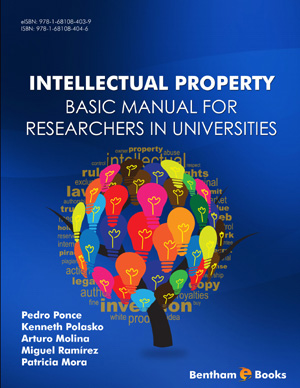Preface
Page: i-iv (4)
Author: Ignitia Motjolopane, Ephias Ruhode and Pius Adewale Owolawi
DOI: 10.2174/9789815196719123010001
Business Model Innovation for Mobile Application Development for SMEs in Response to Disruptive Innovation
Page: 1-23 (23)
Author: Errol Francke*
DOI: 10.2174/9789815196719123010003
PDF Price: $15
Abstract
The central proposition of this chapter is that a multi-factorial strategy
model can be evolved to support mobile application development for SMEs in response
to disruptive innovation through business model innovation. Artificial Intelligence is
often regarded as a significantly disruptive technology impacting many industries
today. AI is penetrating many sectors and transforming the tasks performed by
computers. This chapter rests on two principles: the discovery of business model
innovation and the type of disruption of SMEs in the mobile application sector. The
fieldwork for this chapter consists of four phases. The findings and interpretations
presented in this chapter imply that the rise of disruptive innovation has sparked
technological advancement, which will affect SMEs in South Africa. SMEs should
transition to a progressive interdependent modality where they participate using their
shared strengths, according to the concept of business model innovation. They could
mitigate their weaknesses by working with other mobile app development SMEs. The
value of the principles' synergistic relationship has finally been revealed in the chapter.
The Disruptive Innovation State Response Model and the Disruptive Innovation Praxis
Model were created by this research as responses to its main thesis. A development
agency, businessperson, technologist, venture capitalist, etc. could use these models to
determine the state that the business recognizes itself in and, employing its use,
generate a response that is suitable according to the chapter's final proposition.
Cybersecurity Culture as a Critical Component of Digital Transformation and Business Model Innovation in SMEs
Page: 24-44 (21)
Author: Zoran Mitrovic*, Colin Thakur and Sudhika Palhad
DOI: 10.2174/9789815196719123010004
PDF Price: $15
Abstract
Small and medium enterprises (SMEs) are crucial to national and regional
development and are significant drivers of job creation and income generation. To
remain competitive, SMEs are increasingly adopting Digital Transformation (DT) and
Business Model Innovation (BMI) to take advantage of modern digital technologies.
However, these transformations can also pose serious cybersecurity risks if
organisations do not prioritise cybersecurity threats associated with these modern
technologies. Therefore, this conceptual desktop study examines the cybersecurity risks
of information and communication technologies (ICT) utilised in DT and BMI
processes and recommends fostering an appropriate cybersecurity culture to protect
SMEs during and after these transformations.
Assessing SMEs’ Business Model Innovation Readiness
Page: 45-61 (17)
Author: Cecil Kgoetiane*
DOI: 10.2174/9789815196719123010005
PDF Price: $15
Abstract
This chapter assesses business model innovation readiness for South African
SMEs. The assessment is based on the perspective of two challenges that SMEs went
through pre-, during, and post-novel coronavirus disease of 2019 (COVID-19). The
challenges are about the readiness to innovate the SMEs’ business models and grip
disruptive technologies such as Intelligent Analytics (IA). To investigate the challenges
identified, the chapter expands on IA. In considering IA, four major areas of IA are
synthesized. Importantly, IA is about smarter ways of doing business across different
sectors. Society 5.0 and the fourth industrial revolution plus (4IR+) complement IA, as
the chapter proposes. By and large, the novel COVID-19 accelerated the adoption of
disruptive technologies. The chapter concludes by considering the role of the SMEs’
owner-managers in embracing the technology.
Digital Transformation in SMEs: Developing Digital Business Model Innovations Based on Artificial Intelligence
Page: 62-84 (23)
Author: Tlou Maggie Masenya*
DOI: 10.2174/9789815196719123010006
PDF Price: $15
Abstract
The strategic goal of most organisations is to improve business operations
for successful organisational performance. Digital transformation is a time of swift
technological changes posing an ongoing challenge for Small and Medium Enterprises
(SMEs) to establish high-performance work systems for organisational performance.
Hence SMEs are exploring new technologies to stay competitive and develop
innovative business models in the digital transformation era. Artificial Intelligence (AI)
technologies may enable SMEs to enhance practices and improve their business model
innovation strategies. This chapter examined the existing literature on the digital
transformation of SMEs by implementing Artificial Intelligence. The goal was to
emphasise how AI can significantly change business processes, practices, and overall
organisational performance, ultimately supporting the development of digital business
models in SMEs. The study's findings indicated that AI holds great potential for SMEs
to enhance their business processes, practices, and overall performance, enabling them
to better navigate their increasingly competitive environment. Therefore, it is
recommended that managers of SMEs explore opportunities to incorporate AI and
other advanced technologies into their business innovation processes. By doing so,
SMEs can generate tangible value by strengthening their dynamic capabilities,
improving efficiency, and mitigating operational risks.
Understanding the Affordances of Expert Systems in Improving the Competitiveness of South African Insurance SMEs
Page: 85-106 (22)
Author: Stevens P. Mamorobela*
DOI: 10.2174/9789815196719123010007
PDF Price: $15
Abstract
Small and Medium Enterprises in the insurance industry of South Africa are
increasingly seeking new ways to improve competitiveness. Recently, technologies like
expert systems are evolving to provide new knowledge to enable organizations to
deliver insurance services more effectively and efficiently. However, little information
is presented in the studies of business model innovation about the affordances of expert
systems in improving the competitiveness of the Small and Medium Enterprises in the
insurance industry. Based on the literature review of the Resource-based view model,
this chapter develops a model of the affordances of expert systems to guide Small and
Medium Enterprises in the insurance industry in their effort to improve
competitiveness. An explanatory mixed-method research approach was followed to
collect relevant data using a questionnaire and semi-structured interviews to understand
the affordances of expert systems in Small and Medium Enterprises in the insurance
industry. The results of the study indicate that competitiveness can be improved if the
Small and Medium Enterprises manage the expert system in five areas: (i) as a valuable
resource; (ii) as a rare resource; (iii) as an inimitable resource; (iv) as a unique
organizational resource; and (v) as a low-cost resource. Since the concept of business
model innovation is centered on resources that generate value, this study has
implications for theory and practice in the field of business model innovation,
particularly in the Small and Medium Enterprises operating in the insurance industry.
Factors Affecting the Adoption of Data as a Service (DaaS) in Small, Medium, and Micro Enterprises (SMMEs)
Page: 107-125 (19)
Author: Megan Morta and Osden Jokonya*
DOI: 10.2174/9789815196719123010008
PDF Price: $15
Abstract
Although there are several benefits to the adoption of emerging technologies
by Small, Medium, and Micro Enterprises (SMMEs), not many studies have been
performed on inhibiting Data as a Service (DaaS) adoption factors in SMMEs. This
study, therefore, explores Data as a Service (DaaS) adoption factors in Small, Medium,
and Micro Enterprises (SMMEs). The study adopted a systematic literature review and
TOE framework as a lens to explore the possible factors. The study results suggest that
within the technological context, the complexity, network bandwidth, and availability
were considered the most important factors that affected the adoption of DaaS in
SMMEs. Furthermore, within the organizational context, cost, support, and
infrastructure demand were considered the highest factors affecting DaaS adoption in
SMMEs. Lastly, within the environmental context, the results indicate that customer
demand was considered an environmental factor. In conclusion, the study results
suggest that the adoption of DaaS in SMMEs is affected by several TOE factors.
Despite limitations associated with convenient sampling and non-empirical data, the
study contributes to the body of knowledge on DaaS adoption factors by SMMEs.
Further studies may address the mentioned shortcomings by using empirical data.
Factors Affecting the Adoption of Emerging Technologies to Reduce Food Waste by SMEs in the Food Industry
Page: 126-146 (21)
Author: Talent Muzondo and Osden Jokonya*
DOI: 10.2174/9789815196719123010009
PDF Price: $15
Abstract
Consumers have now been able to purchase whatever food they wish in the
21st century. Not all the food that is purchased is consumed, resulting in food waste.
About a third of the food produced is wasted in the world. Humans are the main
culprits of food waste. The problem is worsening by each day, with different attempts
failing to counter the problem. The study investigates factors affecting the adoption of
emerging technologies to reduce food waste by SMEs in the food industry. The TOE
framework was used for this purpose. The study adopted a systematic literature review
to explore the factors affecting the adoption of emerging technologies to reduce food
waste by SMEs in the food industry. The results from the study suggest that
complexity, security, usability, cost, and flexibility are important technological factors
that affect the adoption of emerging technologies. Furthermore, the results from the
study suggest that organisation size and organisation resistance are important
organisational factors affecting the adoption of emerging technologies to reduce food
waste by SMEs in the food industry. Lastly, the results from the study suggest that IT
policy and legislation are important environmental factors affecting this technology
adoption. Further studies may consider adopting other research methods to explore
factors affecting adopting emerging technologies in reducing food waste by SMEs in
the food industry.
Subject Index
Page: 147-152 (6)
Author: Ignitia Motjolopane, Ephias Ruhode and Pius Adewale Owolawi
DOI: 10.2174/9789815196719123010010
Introduction
Business Models and Innovative Technologies for SMEs focuses on technologies such as data analytics, artificial intelligence and data as a service. As these technologies offer new possibilities, small and medium enterprises (SMEs) often struggle to grasp their full potential within evolving business landscapes. Five reviews discuss the potential of these technologies to drive SME growth. The book also highlights the need for a strategic approach to overcoming challenges faced by SMEs to create innovative business models such as limited resources, infrastructure hurdles, and financial limitations. The chapters explore diverse facets of business model innovation, covering strategic models for mobile application development, the critical role of cybersecurity culture, readiness assessments, digital transformations leveraging artificial intelligence, expert systems' impact on competitiveness, and the adoption of data as services in SMEs. Each chapter is tailored to provide actionable insights drawn from theory and, where possible, real-life case studies, addressing questions related to technological benefits, innovative strategies, and challenges in implementing digital transformations for SMEs. This book caters to a wide audience of academics, researchers, policymakers, and business practitioners deeply invested in SME development, offering practical solutions and theoretical frameworks. The combination of scholarly and practical approaches towards developing and implementing innovative strategies, makes it a valuable resource for readers seeking to understand and support SME growth.









.jpg)


